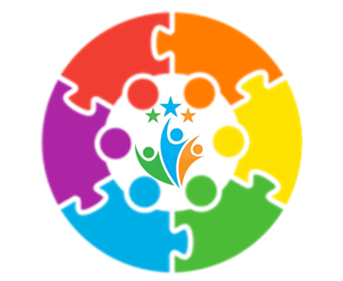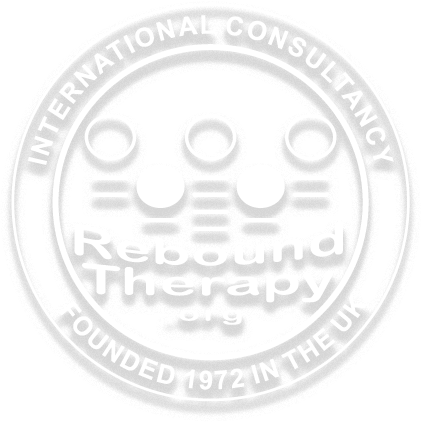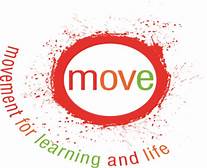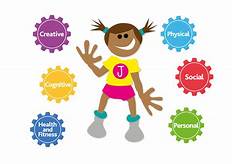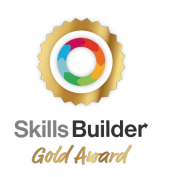Computing
Intent
At Nancealverne School we want our children to be masters of technology and not slaves to it. We recognise that technology is everywhere and will continue to play a pivotal part in the children’s’ lives. We therefore want to model and educate our children how to use technology positively, responsibly and safely. We want our children to be creators as well as consumers and our broad curriculum encompassing different aspects of computing education reflects this. Furthermore, we understand and embrace that computers and related technologies are frequently used throughout the school day and form part of an invaluable education of all of the children.
Every class has access to appropriate technologies including computers, laptops, clever touch boards and iPads. IT is used in the majority of subjects to engage and motivate pupils and allow them access to a wide range of learning opportunities. To ensure all children have access to IT additional resources are available such as height adjustable screens and eye-gaze and touch screen monitors. We also use iPads across the school and find these to be fantastic tools to motivate and engage pupils as well as providing further accessibility to some children. Some children access augmented, alternative communication and this is separate to the school’s computing and IT offer.
All pupils, no matter their age or stage, will be taught key computational thinking concepts; abstraction, decomposition, algorithmic thinking, evaluation and generalisation. These concepts are embedded across all units of study and accessible to a greater or less extent based on need and ability.
The national (and Nancealverne School) curriculum for computing aims to ensure that all pupils (to the fullest of their individual ability):
- Can understand and apply the fundamental principles of computer science, including logic, algorithms, data representation, and communication.
- Can analyse problems in computational terms and have repeated practical experience of writing computer programs in order to solve such problems.
- Can evaluate and apply information technology, including new or unfamiliar technologies, analytically to solve problems.
- Are responsible, competent, confident and creative users of information and communication technology.
Implementation
At Nancealverne, computing is sometimes taught in discreet computing lessons and sometimes as part of other sessions with clear links to the computing targets. The computing curriculum is delivered through a scheme of work based on the Sheffield SEND Computing scheme of work. Each unit was written so that individual units could also be taught as part of a larger cross-curricular topic, or to support other subjects such as English, maths and science as well as life skills and the foundation subjects.
Every lesson in the scheme has been individually planned so that it can be effectively taught using the infrastructure we have in place at school and so that it can meet the needs of all of our children. Teachers are able to make individual adjustments to the planning to further support differentiation and challenge as required.
Having discreet lessons means that children are able to develop depth in their knowledge and skills over the duration of each of the computing topics. Where appropriate meaningful links will be made between the computing curriculum and the wider curriculum. Discreet computing lessons will focus on the curriculum strands; key skills: what is a computer, presenting information and multimedia, data, programming and algorithms and online safety and digital literacy is theme running through each of the strands.
Impact
We encourage our children to enjoy and value the curriculum we deliver. We will constantly ask the WHY behind their learning and not just the HOW. We want learners to discuss, reflect and appreciate the impact computing has on their learning, development and well-being.
Finding the right balance with technology is key to an effective education and a healthy life-style. We feel the way we implement computing helps children realise the need for the right balance and one they can continue to build on in their next stage of education and beyond. We encourage regular discussions between staff and pupils to best embed and understand this. The way pupils showcase, share, celebrate and publish their work will best show the impact of our curriculum. We look evidence through reviewing pupil’s knowledge and skills in each session and observe learning regularly. We also look for evidence of mastery by observing how the children use these skills in cross curricular sessions.
Progress of our computing curriculum is demonstrated through outcomes and the record of coverage in the process of achieving these outcomes. Each child has an online record of the targets that they have achieved using the graded language of ‘emerging, expected and exceeded’. Teachers will update these logs throughout each unit as required.
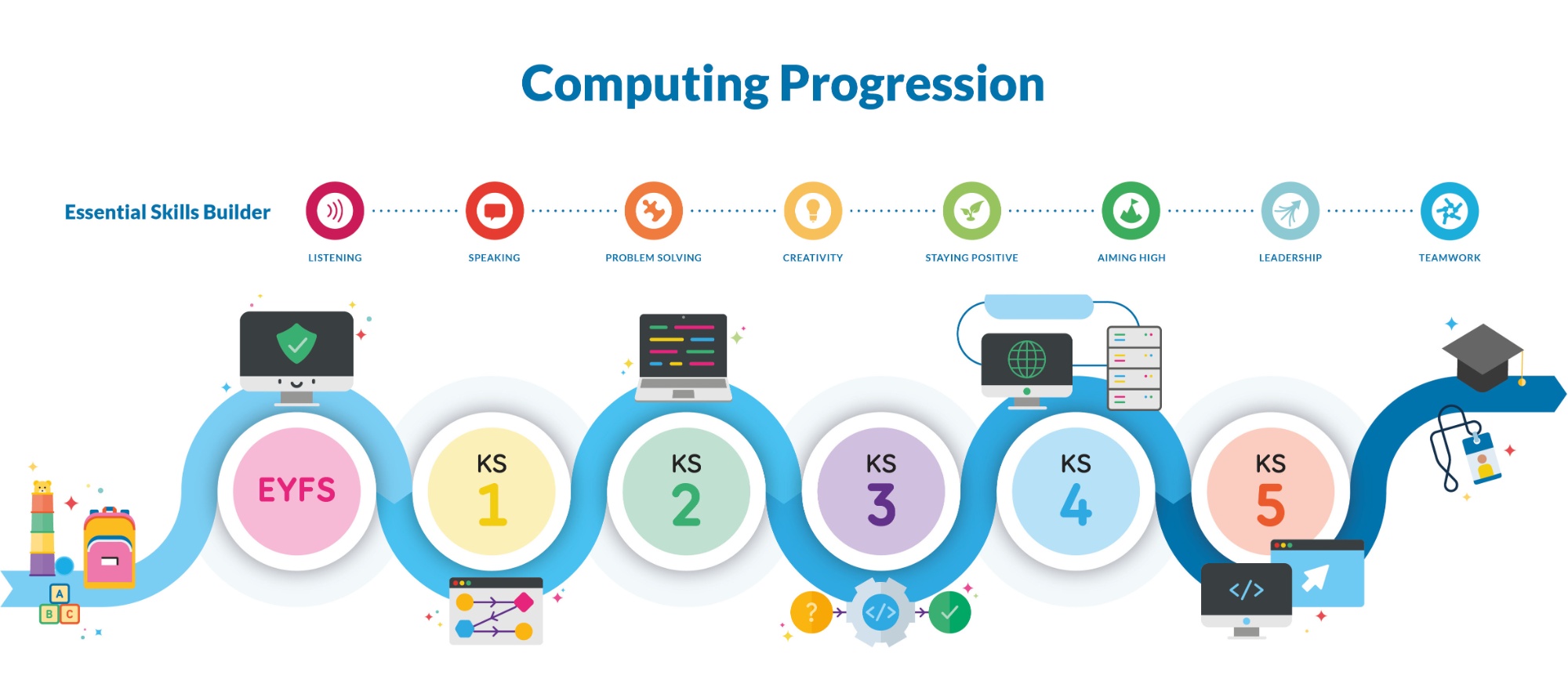
Overall, the objectives for computing education are designed to equip students with the skills and knowledge they need to use technology effectively and safely, and to prepare them for future careers in computing and related fields.
There is an emphasis on E-safety and keeping yourself safe whilst online with the subject embedded in the curriculum as well as being highlighted through safer internet days and information from our computing lead.
Early Years Foundation Stage (EYFS):
- Recognize and use technology purposefully and safely to achieve goals.
- Use simple programmes and applications to support their learning.
- Use technology to share their experiences and achievements with others.
Key Stage 1 (KS1):
- Design, write and debug simple programs.
- Use logical reasoning to explain how some simple algorithms work.
- Use technology safely and respectfully, keeping personal information private.
Key Stage 2 (KS2):
- Design, write and debug simple programs.
- Use logical reasoning to explain how some simple algorithms work.
- Use technology safely and respectfully, keeping personal information private.
Key Stage 3 (KS3):
- Design, write and debug more complex programs.
- Use algorithms to solve problems.
- Understand computer networks and the internet.
Key Stage 4 (KS4):
- Understand how computer systems work, including hardware and software.
- Use programming languages to create programs that solve problems.
- Understand the implications of using technology, including legal and ethical considerations.
Key Stage 5 (KS5):
- Develop an understanding of advanced programming concepts and techniques.
- Apply programming skills to real-world problems.
- Understand how to create and manage databases and networks.
Whilst we follow the objectives of a structured subject-specific curriculum, we offer highly differentiated and personalised learning programmes. We deliver a specialist, high-quality, and relevant education. This focuses on personal skills and academic achievement, setting high expectations for all. We appreciate that students may not be working at age-related or key-stage expectations, and therefore measure progress from individual starting points.

